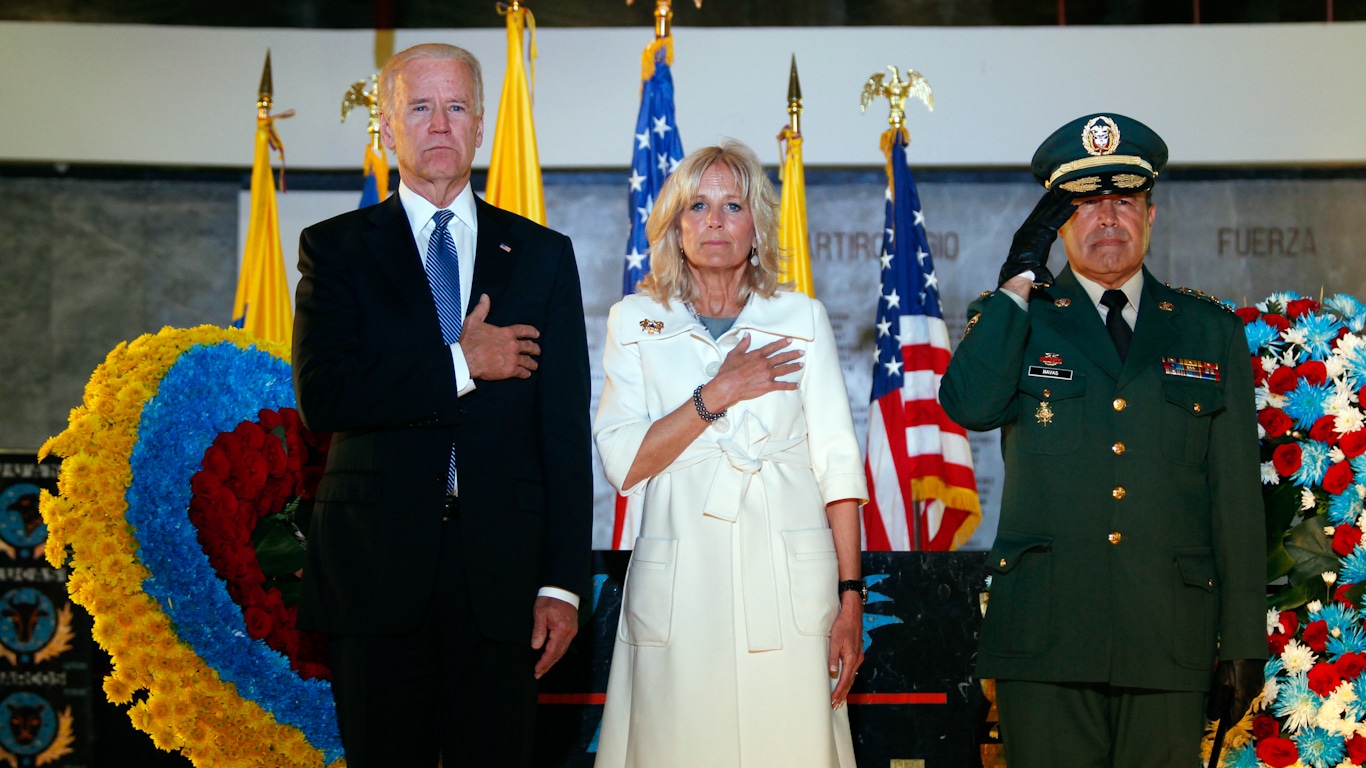
Vice President Joe Biden, left, his wife, Dr. Jill Biden, center, and Colombia's Commander of the Armed Forces Alejandro Navas, stand for the Colombian national anthem during a ceremony to honor Air Force servicemen fallen on the line of duty in a chapel at the Air Force base in Bogota, Colombia, Monday, May 27, 2013. (AP Photo/Fernando Vergara)





